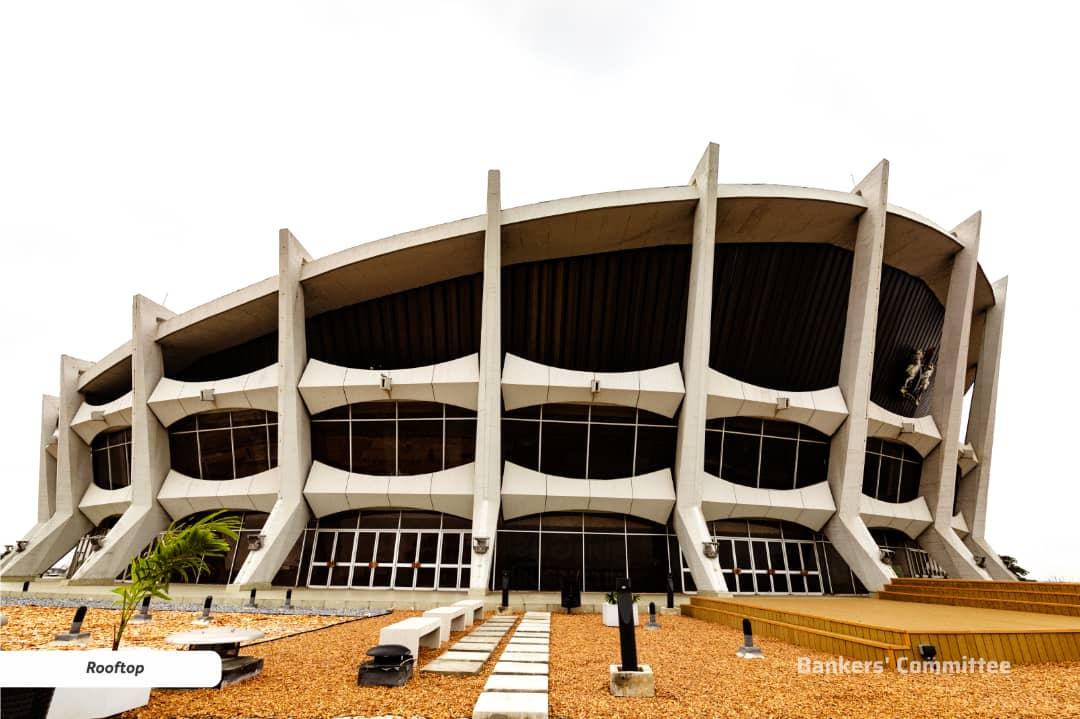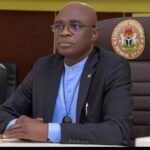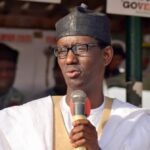
The Bankers' Committee has announced the completion of the restoration and upgrade of the National Theatre, a landmark project that began in July 2021. Following approval by the Federal Government and the formal transfer of the iconic structure to the Committee, this ambitious renovation has now come to fruition.
The restoration project, the committee noted, was driven by a vision to harness the creative sector's vast potential for Nigeria's burgeoning youth population.
Once fully operational, the revamped National Theatre is poised to create numerous job opportunities, boost income generation, and enhance foreign exchange earnings. It will transform into a dynamic hub for creativity and entertainment, offering invaluable community spaces for young Nigerians to explore and excel.
The extensive renovation encompassed a variety of key areas within the Theatre. Major upgrades included the 4,000-seat main auditorium, a 3,000-seat banquet hall, two exhibition halls, three cinemas, VIP lounges, actors' dressing rooms, an industrial kitchen, over 300 new restroom facilities, a clinic, a fire station, and renovated lobbies at each of the Theatre's four entrances. Significant structural improvements were also made to the roof.
During a tour of the facility on Wednesday in Lagos, Mr. Abubakar Suleiman, Managing Director/Chief Executive Officer of Sterling Bank Group and representative of the Bankers' Committee, remarked on the scale of the project. “Initially, we were taken aback by the magnitude of the work required, but we were equally inspired by the possibilities it presented. This project stands as one of the largest of its kind on the continent,” he said. Suleiman emphasized that the standard of restoration achieved is truly world-class.
“The renovation of the National Theatre by the Bankers' Committee exemplifies the power of patriotism and collective responsibility. It showcases what can be accomplished when the private sector collaborates with both the Federal and Lagos State governments to rejuvenate national monuments and assets,” he added.
Upgrades were implemented to align the Theatre with global standards for performance venues.
This included a complete overhaul of the Heating, Ventilation, and Air Conditioning (HVAC) systems, enhancements in fire safety measures, power infrastructure, and water supply and sewage systems. The interior was reimagined with the installation of state-of-the-art Audio Video Lighting (AVL) systems, world-class stage engineering, 17 passenger lifts, solar power solutions, new furniture, and the restoration of artworks on internal walls and the building façade. External improvements included the refurbishment of three entrance gatehouses, the creation of four themed landscapes, a new car park with a capacity for 250 vehicles, a ring road, and the installation of external street lighting and CCTV cameras.
Mrs. Kafilat Araoye, Managing Director of Lotus Bank Ltd and also representing the Bankers' Committee, described the project as a “rebirth of a national treasure and a restoration of our culture and heritage.” She expressed pride in the completed work, highlighting the Committee's commitment to enhancing this cultural landmark.
Lagos State Governor Mr. Babajide Sanwo-Olu praised the renovation, stating, “Upon completion, the Wole Soyinka Center for Culture and the Creative Arts (National Theatre) will not only serve as a venue for arts, tourism, and culture but will also become a significant site for international conferences and world-class performances.”
Originally constructed under General Yakubu Gowon's military regime and completed in 1976 during Olusegun Obasanjo's administration, the National Theatre was inaugurated in time to host the Second World Black and African Festival of Arts and Culture (FESTAC 77) in January 1977. The recent restoration has revitalized this historic venue, ensuring it continues to serve as a beacon of cultural and artistic excellence.















